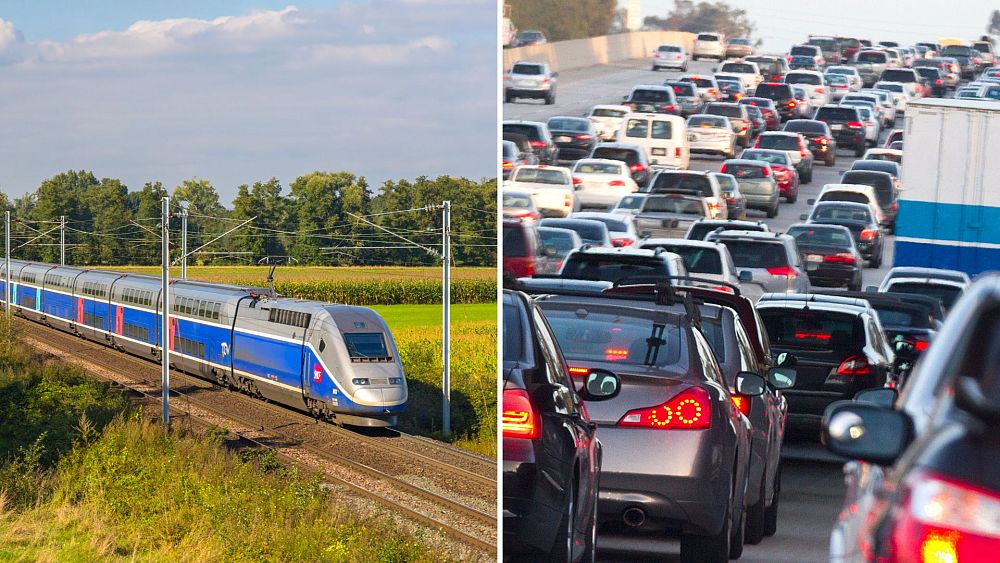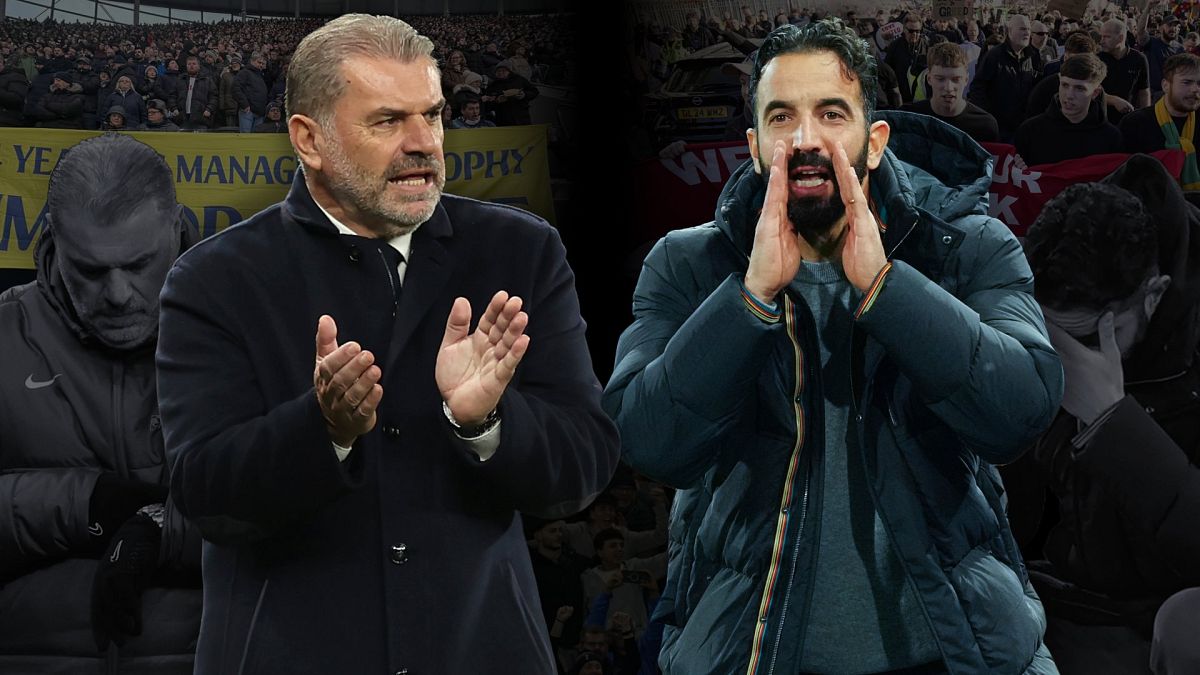Which European countries have invested the most in railways since 1995

A new report reveals how European countries are cutting railways and building roads.
Europe’s rail network has dramatically declined over the past three decades, new research has warned, while investment in roads has soared.
But with the funding gap between the two narrowing, could there be a light at the end of the (previously shuttered) tunnel?
The length of motorways in Europe grew 60 per cent between 1995 and 2020, or 30,000km, according to research conducted by German thinktanks Wuppertal Institute and T3 Transportation and commissioned by Greenpeace.
Meanwhile, railways shrank by 6.5 per cent, or 15,650km, and more than 2,500 railway stations were closed.
The figures expose how governments prioritise cars over rail, warned Greenpeace EU senior climate campaigner Lorelei Limousin.
“Millions of people outside cities have no option but to own a car to get to work, take kids to school or access basic services, living in areas with little or no public transport,” she said.
“This is a direct result of governments dismantling local and regional rail networks while pouring money into roads.”
However, there is a slight silver lining to the sobering research: the funding gap is narrowing.
Between 1995 and 2018, European countries spent 66 per cent more on roads than railways. During the years 2018-2021, European countries spent 34 per cent more on extending roads than on extending railways.
Nonetheless, the disparity is still jarring, Limousin commented.
“Governments and the EU must hit the brakes on this dismantling of our train lines, reopen disused tracks and invest in rail – and stop the massive subsidies for roads that wreck the climate, pollute the air and make people’s lives miserable,” she said.
Which European countries have invested in public transport?
Trains are one of the most eco-friendly ways of getting around. Cars, vans and trucks are responsible for 72 per cent of Europe’s transport emissions, while rail accounts for only 0.4 per cent.
But governments continue to pour money into polluting car infrastructure.
EU-27 countries, Norway, Switzerland and the UK spent approximately €1.5 trillion on road infrastructure and only €930 billion on rail over this 1995-2020 period.
Ten countries report a net increase of their railway networks’ lengths since 1995. These are Belgium, Croatia, Estonia, Finland, Ireland, Italy, Netherlands, Slovenia, Spain and Switzerland.
The bulk of the railway closures took place in Germany (reduced by 6,706 km), Poland (by 4,660 km) and France (by 4,125 km). Despite this, these three countries still represent the longest total network lengths, followed by the UK and Spain.
Between 2018 and 2021, Austria, Belgium, Denmark, France, Italy, Luxembourg and the UK invested more in rail than roads. The other countries spent more on roads than rail. In Romania, the funding gap was particularly stark, with the government spending 12 times as much on roads as it did on rail.
Motorways grew most in Ireland, Romania and Poland, and least in Lithuania, Latvia and Belgium. In 15 out of the 30 countries analysed, the motorway length more than doubled, including Spain, Norway and Greece.
What do researchers think should be done to improve the European rail network?
Several European countries have launched cheap public transport fares in a bid to reduce emissions. More than three million people have purchased Germany’s Deutschlandticket, priced at €49 a month.
But inexpensive fares are not enough. Greenpeace urged policymakers to pour money into railways, public transport, and cycle lanes, and divert it away from motorways and airports.
The researchers believe that more than 13,500km of closed railway lines could be reopened “relatively easily.”
“European nations have a commitment to reduce energy and transport poverty, and
they are committed to the Paris Agreement,” the report authors urge.
“Therefore, from a social and environmental perspective, the funding priorities for transport infrastructure need to shift accordingly.
Source: Euro News














